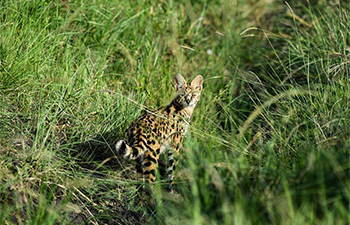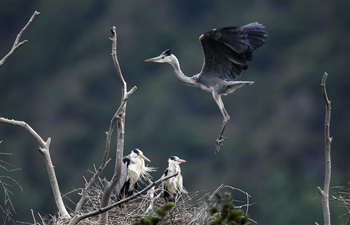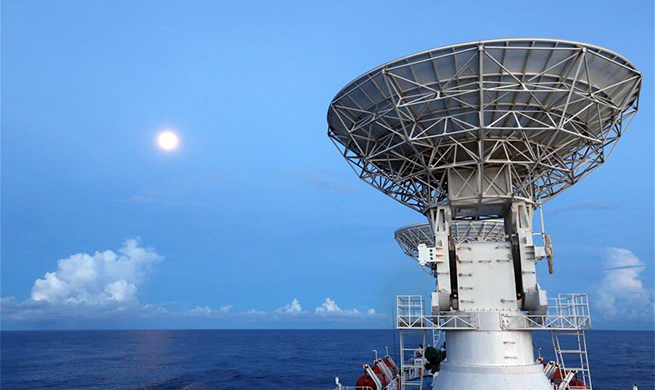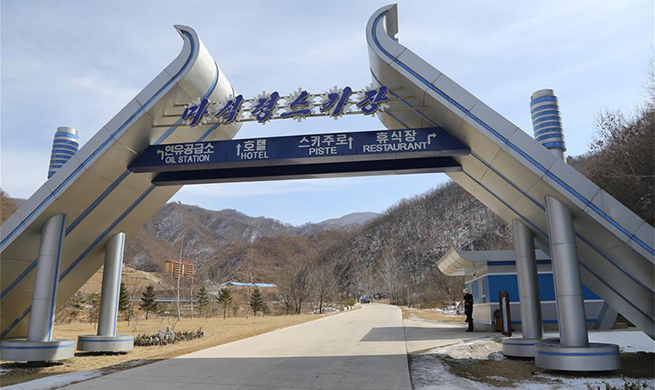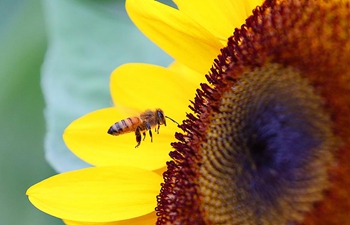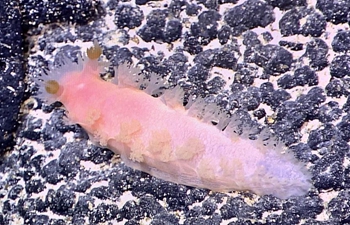CHICAGO, June 19 (Xinhua) -- If current climate and crop-improvement trends continue into the future, corn growers in the U.S. Midwest who today rely on rainfall to water their crops will need to irrigate their fields, according to a study posted on the website of the University of Illinois (UI) on Tuesday.
The study calculated the extent to which hotter conditions expected by mid-century will draw more moisture out of corn plants.
"As the atmosphere warms, it dries, and so the draw for water to go from plants to the atmosphere increases," said UI plant biology professor Evan DeLucia, who led the study. "The ability of the atmosphere to draw water from plants is determined by its 'vapor pressure deficit.'"
"If you add to this the decades-old trend toward bigger, more productive corn plants, you see an overall increase in water use and water loss through plant leaves - without comparable increases in rainfall to counter the deficit," he said.
Average corn yields across the U.S. Midwest are roughly 170 bushels per acre at present. This is up from about 120 bushels per acre in 1990.
"If this trend continues, the projected yield in 2050 would be 230-240 bushels per acre averaged across the Midwest," Delucia said. "If you want more corn, then you have to have a bigger plant, and a bigger plant is going to use more water."
Precipitation is not expected to increase enough in the Midwest to compensate for the drying conditions of the warmer atmosphere, the researchers found.
"We are getting more intense storms in the spring and less rain in late summer," DeLucia said. But the overall amount of precipitation is not expected to change much in the coming decades.
Even without increases in plant size and productivity, warming conditions alone will necessitate a much greater demand for water, the researchers found.
"We show that as vapor pressure deficit increases, maintaining current maize yields will require a large expansion of irrigation, greater than threefold, in areas currently supported by rain," the researchers wrote.
The study has been published in the journal Ecosphere.


